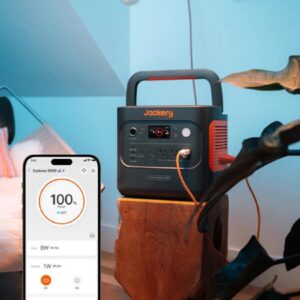As the final act in the drama of tenancy unfolds, the stage is set, and the spotlight shines brightly on the kitchen.
In the United Kingdom, this pivotal space plays a leading role in determining the outcome of a successful departure and the return of your hard-earned security deposit.
In this guide, we delve into the critical significance of kitchen cleaning at the end of tenancy, illuminating its profound impact on the deposit retrieval process. Our mission? To provide a step-by-step guide for preparing your kitchen for that all-important move-out inspection while navigating the unique challenges that British kitchens often present.
Planning Your Cleaning Strategy
Before you embark on this cleaning odyssey, strategy is vital. Calculate the time required for the task ahead, considering the kitchen’s size and condition. Rushing through this pivotal stage is a recipe for disappointment.
Craft a comprehensive checklist that leaves no stone unturned. The key is a thorough cleaning.
Remember, the devil is in the details, and areas often missed must be part of your plan.
Dealing with British-Specific Kitchen Challenges
British kitchens have their own character, moulded by the island’s climate and culinary traditions. Limescale build-up, mould due to damp conditions, and grease accumulation from hearty British cooking are adversaries to reckon with.
To vanquish these foes, arm yourself with locally available cleaning products. Vinegar stands as a stalwart against limescale, while mould remover tackles the damp-induced spores. For the relentless grease, eco-friendly degreasers will be your trusty sidekick.
Appliance Deep Cleaning
Appliances in your kitchen have witnessed countless gastronomic adventures. For impeccable end-of-tenancy cleanness, these workhorses demand your undivided attention. Begin with gas hobs, electric ovens, and extractor fans—the unsung heroes of British kitchens.
Detailed instructions for cleaning these appliances are your guide, addressing stubborn stains, grease, and burnt-on food residue that tell tales of culinary conquests.
Countertops, Cabinets, and Storage Areas
Countertops, cabinets, and storage areas must undergo meticulous cleaning to meet the lofty standards expected by UK landlords. Various countertop materials, from laminate to granite to wood, necessitate specific cleaning approaches. Cabinets, shelves, and storage areas should be emptied and cleaned inside out.
Neglecting a nook or cranny will ensure that your kitchen leaves a lasting impression and guarantees a hassle-free inspection.
Sinks, Faucets, and Drainage
Sinks and taps, subjected to hard water stains in many British regions, warrant detailed cleaning methods. Considering this common issue, focusing on hard water stain removal is crucial. Drainages require attention, too, ensuring they are free from blockages and odours.
Floors, Walls, and Tiles
Kitchen floors, walls, and tiles, each with its distinct character, are equally important. Different flooring materials, such as ceramic tiles or linoleum, grace UK kitchens. Strategies for removing grime and stains from these surfaces, particularly in cooking and preparation areas, should be considered.
Windows, Doors, and High-Touch Areas
Windows, doors, and high-touch areas like handles and switches often bear the brunt of dirt and grime. In the UK, urban kitchens may contend with pollutants, while rainy seasons leave their mark on windows. During the inspection, giving these areas your undivided attention is essential for a sparkling kitchen.
Check and Clean Kitchen Utensils
Wash and clean all kitchen utensils, pots, and pans thoroughly to guarantee a pristine kitchen. For thorough cleaning, use warm, soapy water, being careful to concentrate on any places that still have oil or traces of food.
Scrub pots and pans diligently to remove any stubborn, stuck-on food particles. This meticulous approach guarantees that your kitchen essentials are not only visually clean but also free from any hidden grime or contaminants.
Dispose of Waste Properly
First, clean and empty the kitchen trash can to keep your kitchen organised. Empty the trash bags into an outdoor container after tying them up tightly. Clean the inside of the container to eliminate any spills or odours. For a lasting, fresh smell, think about using a bin deodoriser. This simple routine ensures that your kitchen stays clean and odour-free.
Illuminate your kitchen by giving your light fixtures some TLC:
Take a moment to inspect your light fixtures, checking for any pesky dust or fallen insects. Gently remove the covers, clean them up, and give the bulbs a quick wipe-down. Make sure all your lights are shining brightly and working perfectly.
It’s all in the details:
Never disregard the significance of small details. Clean your skirting boards, drawer handles and knobs, and switch plates to freshen up your area. Say goodbye to cobwebs in ceilings and corners, and dust and clean behind larger appliances.
Spot those sneaky repairs:
While you’re in the cleaning groove, keep an eye out for any sneaky signs of wear or damage. Jot down notes on any repairs that need a helping hand, and be sure to let your landlord or letting agent know ASAP. Your kitchen will thank you for the extra care!
Key Areas Landlords Scrutinise
UK landlords possess a keen eye for detail, and specific kitchen areas often fall under their scrutiny. These include spaces behind appliances, under the sink, and the oven’s condition. A thorough cleaning of these zones can be the difference between a full deposit return and deductions.
Choosing and Preparing for Professional Cleaning Services
Choosing professional cleaning services can be a game-changer for those facing larger or more challenging kitchens. Highlight the advantages of hiring professionals, such as time-saving and expertise in handling complex cleaning tasks.
Offer tips on selecting a reliable cleaning service and preparing your kitchen for their visit. A well-prepared kitchen will enable them to work efficiently, ensuring a spotless result.
Before you leave, take a final look around:
Check that everything is in order and the kitchen is tidy. Use this extensive cleaning list to confirm the house is really clean and improve your chances of getting your deposit back.
Remember to give yourself enough time for cleaning, and think about getting end of tenancy cleaning professionals if you need help. A clean and well-kept kitchen is not only good for you but also shows respect for the owner and the next tenants.
Conclusion
In conclusion, mastering end-of-tenancy kitchen cleaning in the UK is akin to crafting the final chapter of your tenancy story.
Understanding the significance of a pristine kitchen, meticulous planning, and addressing British-specific challenges is essential. Professional cleaning services can be a valuable ally for those contending with larger or more demanding kitchens.
By following this comprehensive guide, you can approach the task of end-of-tenancy kitchen cleaning with confidence and efficiency, securing the return of your deposit and leaving behind a kitchen that tells a tale of meticulous care and cleanliness.












+ There are no comments
Add yours